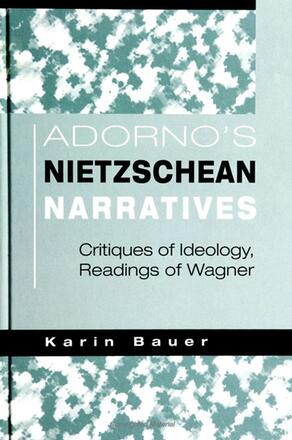
Adorno's Nietzschean Narratives
Critiques of Ideology, Readings of Wagner
Alternative formats available from:
Investigates the intellectual affinities of Adorno and Nietzsche, culminating in a discussion of their readings of Wagner, who serves as a medium and supplement for their critiques of modern culture.
Description
This is the first book to provide a broad and comparative analysis of the relationship of these two influential thinkers to one another. Defying conventional appropriations of Nietzsche's and Adorno's thought, Bauer establishes crucial links between different traditions of critical thought, suggesting elective and selective affinities in the pursuit of a radicalized critique of ideology and culture. Against Habermas, Bauer argues that Nietzsche did not abandon the project of modernity, but rather achieved its most radical confrontation with the myths of the Enlightenment. Bauer's inquiry into Nietzsche's and Adorno's critiques of rationality, historicism, metaphysics, and Bildung culminates in an exposition of their readings of Wagner, who serves as a medium and supplement for their critiques of modern culture.
Karin Bauer is Associate Professor of German Studies at McGill University.
Reviews
"This is one of the great encounters of the twentieth century. Bauer does pioneering work in establishing a comprehensive account of Adorno's actual dealing with Nietzsche, and by unfolding the dialogue between the two philosophers on the issue of modernity, she makes an important contribution to our own self-understanding and self-consciousness. The subject matter is not 'easy,' but Bauer presents it in a way that captivates the reader. I am certain the book will find a broad audience among people who are interested in the Frankfurt School, Nietzsche, and in critical theory in general. " — Ernst Behler, University of Washington